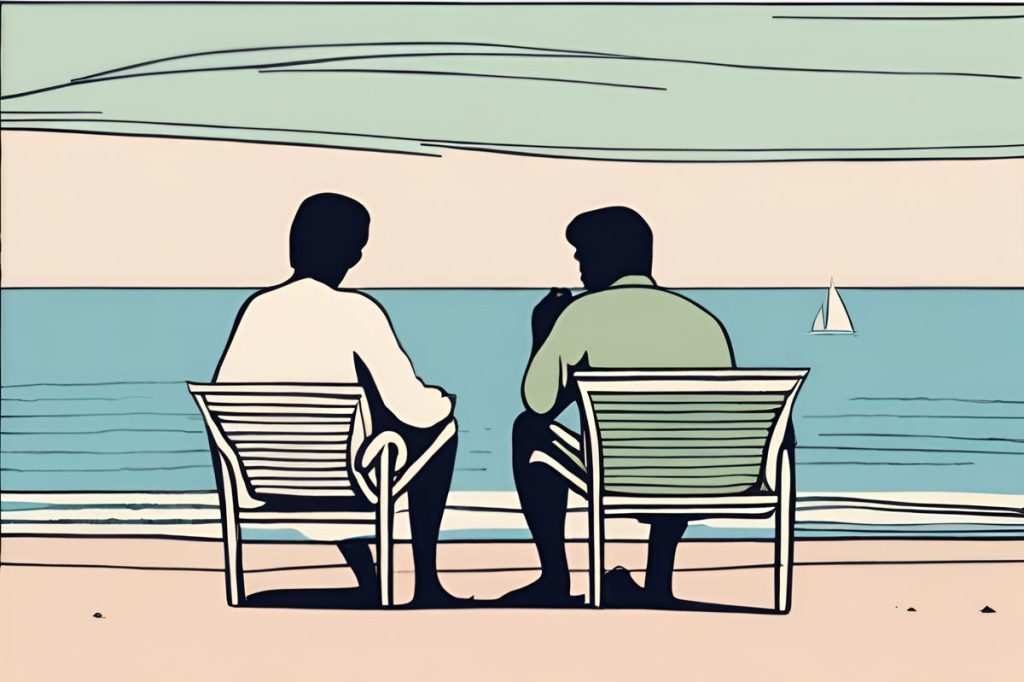Paralimni’s mayor, Giorgos Nikolettos, and Deryneia’s deputy mayor, Nikos Lillis, have been blacklisted by northern authorities after their peaceful visit to Kato Deryneia with the Unenslaved Kato Deryneia group, sparking a diplomatic outcry. This surprising turn has led to community calls for government action and international support to uphold their right to reconnect with their historical lands in Cyprus.
Why were Paralimni leaders blacklisted by authorities in the north?
Paralimni’s mayor, Giorgos Nikolettos, and Deryneia’s deputy mayor, Nikos Lillis, were blacklisted for their involvement with the Unenslaved Kato Deryneia group. Their peaceful visit to the occupied village of Kato Deryneia was deemed provocative by the north, leading to this diplomatic controversy.
Diplomatic Strain Over Peaceful Visit
In a surprising turn of events, the tranquil atmosphere of Paralimni, a town known for its picturesque beaches and serene lifestyle, was disrupted by news that sent ripples through the local government. The mayor of Paralimni, Giorgos Nikolettos, along with Deryneia’s deputy mayor, Nikos Lillis, found themselves at the center of a diplomatic controversy. Reports emerged on a serene Friday that both officials were placed on a blacklist by authorities in the north, following their involvement with the Unenslaved Kato Deryneia group.
This revelation came as a shock to the community when it was discovered that their peaceful visit to the village of Kato Deryneia had sparked such a harsh response. According to local authorities, the blacklist came to light after other members of the group attempted to cross north, with one individual even facing a brief arrest before their subsequent release.
Community’s Call to Action
The situation has led to an outcry from the affected municipalities, with spokespeople condemning the actions of the north as “provocative acts” in response to what was meant to be a peaceful expression of the community’s historical connection to their land. The legacy of displacement lingers, as they noted, “It is sad when refugees visit their homes which have been occupied for 50 years and face an angry reaction from the occupying regime.” In light of these events, a strong appeal has been made to the government to step in decisively.
The local leaders are urging the government to take all necessary measures to address the blacklist issue, to support their awareness and information campaigns that shine a light on the occupancies both within Cyprus and on international stages. Their demands for action are echoed by the sentiments of the broader community that looks to preserve its heritage and maintain its right to peaceful visitation.
International Involvement and Response
The issue has not gone unnoticed by the international community. The advocacy group ‘Unenslaved Kato Deryneia’ took the initiative to reach out to the United Nations Peacekeeping Force in Cyprus (Unficyp), directly addressing chief Colin Stewart in a comprehensive letter detailing the incidents and their implications. Their efforts underscore the seriousness of the situation and the need for an impartial perspective on the matter.
Acknowledging the sensitivity and potential ramifications of the situation, President Nikos Christodoulides has stepped into the fray. Confirming his awareness of the situation, he assured the public that the foreign ministry is actively pursuing a resolution. Efforts are underway, engaging both the European Union and the United Nations through diplomatic channels to advocate for the leaders’ removal from the blacklist and to ensure that such incidents do not hinder the peace process or the rights of Cypriots to reconnect with their heritage.
Program of Peaceful Advocacy
The matter has become the latest testament to the complexities that continue to define the relationships between the divided regions of Cyprus. The community of Paralimni and Deryneia, despite the political challenges, remains steadfast in its commitment to peaceful advocacy and the promotion of understanding regarding their displaced lands.
The government’s actions in the coming days will be crucial to not only addressing the immediate concerns surrounding the blacklisting of their officials but also in setting the tone for future interactions and the ongoing pursuit of reconciliation and peace. The hope is to foster an environment where historical grievances can be addressed without the fear of reprisal, ultimately paving the way for a more unified future.
“`markdown
Why were Paralimni leaders blacklisted by authorities in the north?
Paralimni’s mayor, Giorgos Nikolettos, and Deryneia’s deputy mayor, Nikos Lillis, were blacklisted due to their involvement with the Unenslaved Kato Deryneia group. Their peaceful visit to the occupied village of Kato Deryneia was perceived as provocative by northern authorities, igniting a diplomatic controversy.
What actions are being taken by the local community in response to the blacklisting?
In light of the blacklisting, there has been significant community outcry. Local leaders are calling for government intervention to address the blacklist issue and support awareness campaigns that highlight the situation in Cyprus. They aim to preserve their historical rights and ensure peaceful visitation to their ancestral lands.
How has the international community responded to the situation?
The incident has attracted attention from the international community, particularly through the advocacy group ‘Unenslaved Kato Deryneia.’ They have reached out to the United Nations Peacekeeping Force in Cyprus (Unficyp) to detail the situation and its implications. President Nikos Christodoulides has also confirmed that the foreign ministry is working with the European Union and the United Nations to resolve the blacklisting issue.
What are the broader implications of this incident for future relations in Cyprus?
This incident highlights the ongoing complexities of the relationship between the divided regions of Cyprus. It underscores the need for peaceful advocacy and dialogue to address historical grievances without fear of reprisal. The government’s response will be crucial in shaping future interactions and fostering reconciliation efforts within the community and across the island.
“`

